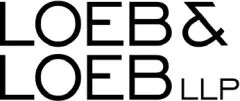- within Tax, Consumer Protection and Employment and HR topic(s)
- in United States
Senator Baucus's attempt to reinstate the generation skipping transfer tax and the 45% gift tax rate as of December 2, that we reported on last Friday, was defeated in a Senate vote Saturday morning.
For clients considering 2010 generation skipping gifts, it may be advantageous to expedite those gifts in order to avoid the risk of a tax law change reinstating the generation skipping transfer tax that is effective as of the "date of introduction" (i.e., the date a bill is introduced in Congress), rather than as of the "date of enactment" (i.e., the date the President signs a new law). Be aware, however, that there is still the risk of retroactive application of a change in the tax law to a date prior to the date of introduction.
For those clients considering 2010 gifts that are not generation skipping gifts, the same considerations apply. However, the risk of being subject only to a higher gift tax rate than the present 35% due to delaying the gifts is not nearly as significant as the risk of being subject to a higher gift tax rate coupled with a generation skipping transfer tax for generation skipping gifts.
The content of this article is intended to provide a general guide to the subject matter. Specialist advice should be sought about your specific circumstances.


